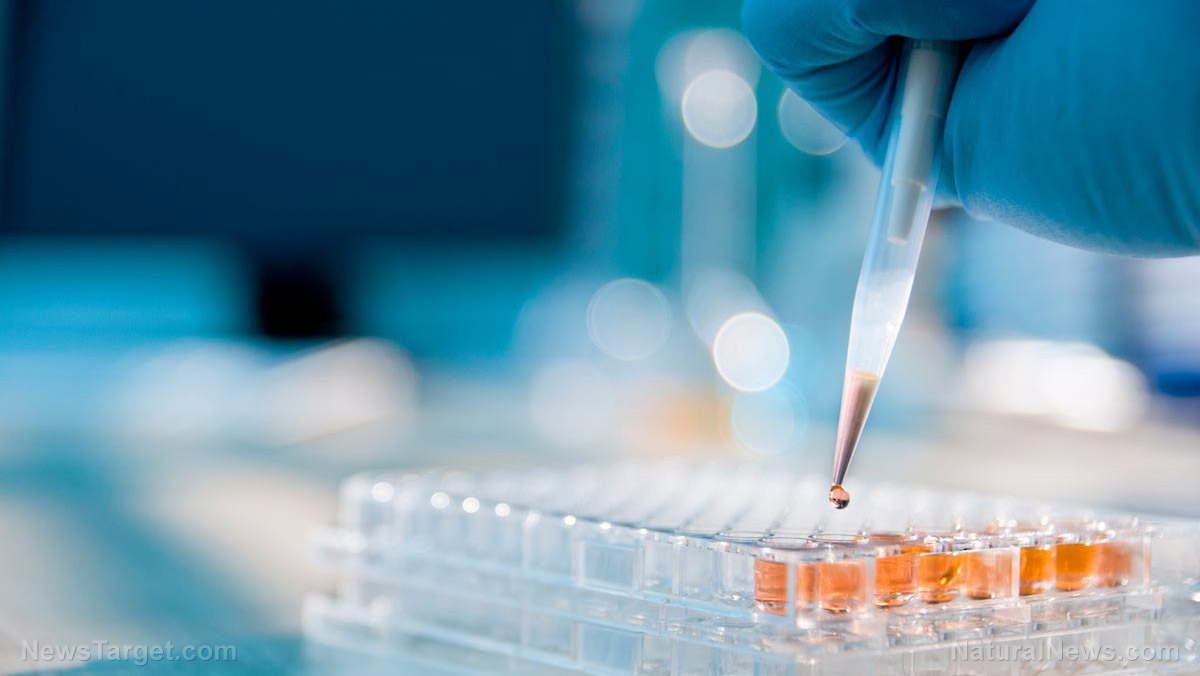Biohackers collude with Big Tech to run risky gene therapy trials
02/20/2023 / By Belle Carter

Biotech start-up Minicircle has started to enlist participants for a clinical trial of gene therapy, to be paid in cryptocurrency and held in what is essentially an experimental crypto city – Prospera, Honduras.
According to reports, the would-be “guinea pigs” would need to purchase nonfungible tokens (NFT) – assets that are unique and can’t be replaced or traded – to take part in the experiment that would target familiar conditions like muscular disorders, HIV, low testosterone and obesity.
The biotechnology firm, which aims to democratize access to gene therapies, with an emphasis on discovering the right nucleic cocktail to promote longevity, posted an advertisement that came out on Web3 publishing platform Mirror in March last year. The advertisement stated: “Access NFTs for a follistatin plasmid phase I clinical trial in Prospera [Zone for Employment and Economic Development] ZEDE, Honduras.”
The unconventional recruitment effort marked a curious development in the space of gene therapy, a cutting-edge field that has endured decades of false starts and setbacks. Gene therapy treatments approved by the Food and Drug Administration (FDA) remain rare, but those breaking through come with hefty price tags, in part because of the cost and complexity involved in their creation.
Minicircle was registered in Delaware but its first gene therapy clinic is in Prospera, which is a private charter city and special economic zone in Honduras.
“It is an aspiring libertarian paradise born from controversial legislation that has allowed international businesses to carve off bits of Honduras and establish their own micronations,” the Expose wrote, adding that the city has pulled in investment from Peter Thiel, co-founder of PayPal, Palantir Technologies and Founders Fund, and Marc Andreessen, co-founder of Netscape and Ning and Facebook board member.
“I think the potential of the Minicircle technology is radically transformative and beneficial for everyone on Earth,” the company founder and CEO Mac Davis said, referring to the company’s key technique for delivering gene therapy into people’s cells. “The keys to immortality, we’ve already discovered some of them. Our choice is just whether to try it out and not be hampered by fear and regulation.”
A lot of other scientists are skeptical about Minicircle’s methods and aims. Also, medical ethics experts are concerned about how the trials will move forward and what they could mean for the burgeoning and sometimes unscrupulous medical tourism industry.
“If Davis’ lofty aspirations aren’t realized, Minicircle’s endeavors may at least open up a new frontier for consumer-marketed gene therapies, in the mold of the thriving market for unlicensed (and potentially risky) stem-cell therapies,” the Expose’s Rhoda Wilson said. (Related: Dr. Jane Ruby: Gene editing therapy is dangerous and damaging – Brighteon.TV.)
Microbiologist, others undergo DIY gene therapy
Brian Hanley, microbiologist and founder of Butterfly Sciences, a consulting firm founded to develop gene therapies for HIV and aging, raised funds for his company by obtaining a proof of concept and decided to test the gene therapy on himself. “I wanted to prove it, I wanted to do it for myself, and I wanted to make progress,” he said.
At Hanley’s request back in 2015, a doctor had injected into his thighs copies of a gene that the microbiologist had designed and ordered from a research supply company. Then, plunging two pointed electrodes into his leg, the doctor passed a strong current into his body, causing his muscle cells to open and absorb the new DNA. The gene injected into his muscle cells would make his body produce more of a potent hormone to potentially increase his strength, stamina and life span.
According to MIT Technology Review, this was the second case it has documented of unregulated gene therapy, a risky undertaking that is being embraced by a few daring individuals seeking to develop anti-aging treatments.
“I think it’s damn crazy,” said Bruce Smith, a professor at Auburn University who develops genetic treatments for dogs. “But that is human nature, and it’s colliding with technology.”
But Hanley, who has dreamed the same scenario of him hacking his own genes, said his dream was straightforward and simply meant he’d become “Dr. Frankenstein’s monster.” “My unconscious is really not that subtle. I had become something else, not entirely me,” he said. After his undertaking, he published a paper in 2021 titled “Results of a 5-Year N-of-1 Growth Hormone Releasing Hormone Gene Therapy Experiment.”
What he went through piqued the interest of big-league scientists. His blood has been studied by researchers at Harvard University in the laboratory of renowned genomics expert George Church.
Church, who provided MIT with an introduction to Hanley, said he knows of a handful of other cases of do-it-yourself gene therapy. “And there are probably a lot more since regulators have not signed off on the experiments,” he pointed out.
Visit Biotech.news to learn more about gene editing, gene therapy and biohacking.
Watch the video below where World Economic Forum founder and Executive Chairman Klaus Schwab discusses gene editing.
This video is from the SecureLife channel on Brighteon.com.
More related stories:
Big Pharma admits mRNA injections are gene therapies, but no one seems to care.
Biotechnology is being forced onto us without anyone knowing the consequences.
Sources include:
Submit a correction >>
Tagged Under:
big government, Big Tech, biohackers, biotech, Clinical trials, conspiracy, cryptocurrency, gene editing, gene hacking, gene therapy, genetic lunacy, Honduras, insanity, medical ethics, medical experiments, Minicircle, NFT, PayPal, research
This article may contain statements that reflect the opinion of the author
RECENT NEWS & ARTICLES
COPYRIGHT © 2017 SCIENCE CLOWNS



















